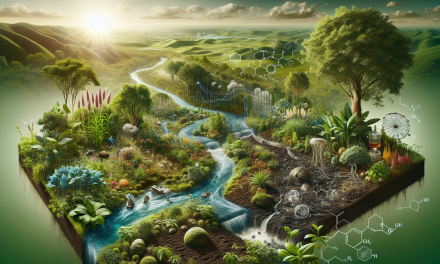Table of Contents
- Introduction
- Understanding Soil and Water Chemistry
- Why Environmental Chemistry Matters
- Practical Applications of Environmental Chemistry
- Exploring Chemical Engineering
- Frequently Asked Questions
- Conclusion
Introduction
Welcome to the fascinating world of environmental chemistry! In this post, we will delve into the fundamental aspects of soil and water chemistry.
Moreover, we will explore how these concepts directly impact our environment and daily lives. Understanding the chemistry of our natural resources is essential. After all, knowledge empowers us to make better choices.
Understanding Soil and Water Chemistry
What is Soil Chemistry?
Soil chemistry involves the study of the chemical composition and processes within the soil. It focuses on understanding elements such as nutrients, pH levels, and organic matter composition.
Additionally, it’s crucial to grasp the relationships between these factors and their influence on plant growth and ecosystem health. If you’re seeking an in-depth exploration, check out this comprehensive guide, which covers essential soil chemistry concepts.
What is Water Chemistry?
Water chemistry, on the other hand, examines the chemical properties of water. Understanding its pH, dissolved oxygen levels, and the presence of contaminants is critical for both ecological and human health.
The intricate balance of chemical elements in water bodies influences aquatic life, and subsequently, the entire ecosystem.
Why Environmental Chemistry Matters
Protecting Our Resources
Environmental chemistry plays a vital role in protecting our natural resources. It helps us identify pollution sources and remediate contaminated sites. Consequently, applying these principles is imperative for sustainable development.
Addressing Climate Change
Moreover, knowledge of environmental chemistry is crucial in tackling climate change. Chemical reactions in the atmosphere, soil, and oceans significantly influence global warming and environmental degradation.
Enhancing Agricultural Practices
A deeper understanding of soil and water chemistry greatly enhances agricultural practices. By analyzing soil properties, farmers can optimize their use of fertilizers and pesticides, minimizing environmental impact while maximizing yield.
The balance is delicate, but with careful management, sustainable and productive agricultural practices can emerge.
Practical Applications of Environmental Chemistry
Pollution Control
One of the most significant applications of environmental chemistry is pollution control. Knowledge of chemical processes equips scientists and engineers with the tools to develop filtration and remediation systems.
Water Quality Testing
Regular water quality testing is a vital aspect of environmental management. Using chemical analysis, we can identify pollutants and determine necessary action steps. This ensures safe drinking water and a healthier environment for all.
Scientific Research and Innovation
Scientific research in environmental chemistry leads to innovations that address chemical challenges worldwide. Whether through creating biodegradable materials or developing new energy sources, the possibilities are endless.
Exploring Chemical Engineering
Fundamental Concepts
As we extend our discussion to chemical engineering, let’s consider its core concepts. Chemical engineering applies principles of chemistry, physics, and mathematics to solve problems related to the production or use of chemicals.
It entwines with environmental chemistry, creating solutions that enhance efficiency and minimize environmental impact. The nuances of these fields can seem daunting at first, but understanding them is essential for progress.
Practical Solutions in Chemical Engineering
Practitioners in chemical engineering often focus on designing processes that convert raw materials into valuable products. This involves optimizing chemical reactions and ensuring robust safety protocols.
For a deeper insight, take a look at this essential concepts and practical solutions article.
Frequently Asked Questions
What is the difference between soil chemistry and water chemistry?
While soil chemistry focuses on the chemical components found within soil, water chemistry analyzes the properties and composition of water. Both fields are essential for understanding environmental health and ecosystem functioning.
How does environmental chemistry impact agriculture?
Environmental chemistry influences agriculture by providing insights into soil health and nutrient management. By understanding chemical interactions, farmers can implement sustainable practices that lead to better harvests and less environmental damage.
Conclusion
In summary, environmental chemistry serves as a bridge between our understanding of the natural world and our efforts to protect it. Whether in agriculture, pollution control, or innovative research, the relevance of these concepts resonates widely.
The journey into soil and water chemistry is far from over. Each discovery carves a path toward sustainability and healthier ecosystems for generations to come. Stay curious and keep exploring!





